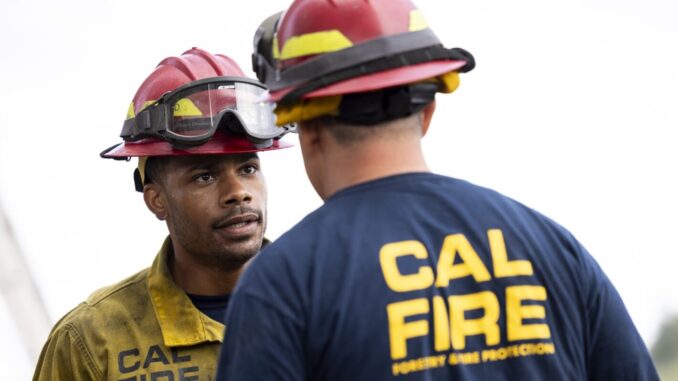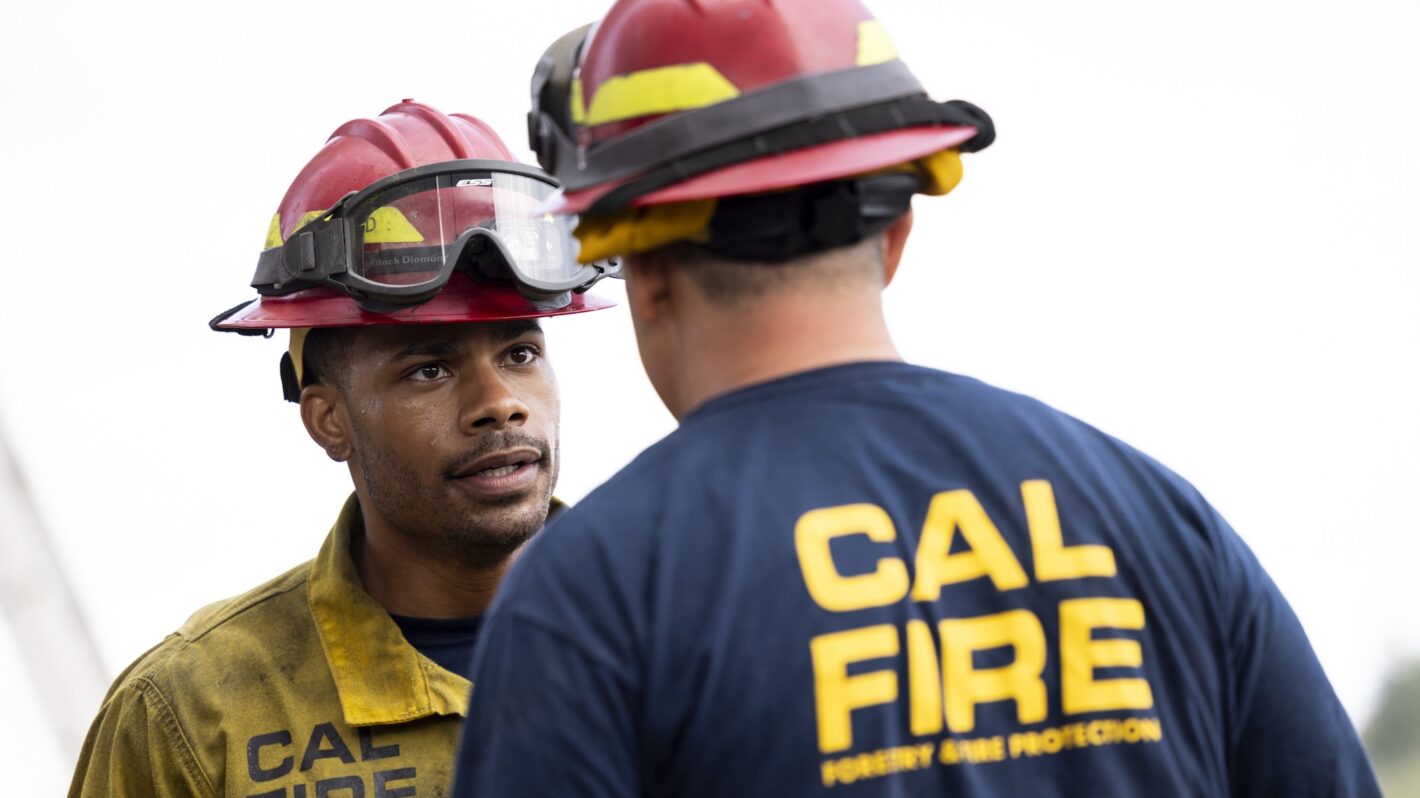
The Weight of the Helmet: Jordan Calloway’s Grateful Embrace of Command in Fire Country
Television, at its best, isn’t merely a distraction; it’s a mirror reflecting our potential, our struggles, and our capacity for growth. Few shows embody this more vividly than CBS’s Fire Country, a searing drama set against the backdrop of California’s devastating wildfires. At its heart lies a complex tapestry of redemption, family, and the raw courage of those who run towards danger. Among its compelling ensemble, Jordan Calloway’s portrayal of Jake Crawford has consistently been a grounding force, a character whose integrity and quiet strength have resonated deeply. So, when the script delivered the monumental twist of Jake’s promotion to Battalion Chief, Calloway’s palpable gratitude wasn’t just a professional courtesy; it was the sincere appreciation of an artist entrusted with a profound elevation of his craft and his character.
From the outset, Jake Crawford was never a peripheral figure. As the step-brother to the show’s protagonist, Bode Donovan, and a dedicated firefighter in his own right, Jake navigated the tumultuous waters of family loyalty, personal ambition, and the ever-present dangers of his profession. Calloway imbued Jake with a blend of earnestness and subtle vulnerability, making him relatable even amidst the show’s high-octane drama. We saw his competence on the fire lines, his unwavering support for his friends, and his quiet struggle to forge his own identity outside the shadow of his complex family history. He was a man who earned respect through consistent action, not grandstanding. This foundational work by Calloway laid the crucial groundwork for what was to come, proving Jake’s mettle long before any insignia officially declared it.
The “Battalion Chief twist” wasn’t merely a bump in rank; it was a seismic shift in the topography of Jake’s character and, by extension, Calloway’s journey as an actor. Suddenly, the man who once followed orders was now giving them, responsible not just for his own safety but for the lives of an entire crew, navigating the treacherous politics of inter-agency cooperation, and making split-second decisions with life-or-death consequences. This promotion signifies an earned trust from the showrunners, a recognition of Calloway’s ability to shoulder heavier dramatic weight. It elevates Jake from a vital team member to a central pillar of leadership, forcing him into a crucible of responsibility that will inevitably forge new facets of his personality. One can almost picture Calloway, script in hand, the realization dawning, a quiet thrill of artistic challenge replacing the routine. The weight of the helmet, metaphorically speaking, is not just a prop; it’s the burden of command, a narrative gift that actors crave.
Calloway’s gratitude, therefore, extends beyond the professional. It speaks to the personal satisfaction of witnessing a character’s arc reach such a meaningful zenith. For an actor, the opportunity to explore new dimensions of a character—the internal conflicts of leadership, the pressure of command decisions, the solitude of being at the top—is a creative goldmine. It allows for deeper emotional exploration, more complex scene work, and a chance to truly stretch one’s acting muscles. This isn’t just about screen time; it’s about the quality of the narrative and the trust placed in an actor to deliver on that potential. His gratefulness is a testament to the collaborative spirit of television, where writers and actors build worlds and people together.
Beyond the immediate thrill for Calloway and the character, Jake’s elevation to Battalion Chief holds broader significance. It speaks to themes of mentorship, perseverance, and the often-overlooked journey of quiet competence culminating in deserved recognition. It’s a powerful statement within the narrative, showing a young Black man stepping into a position of significant authority and responsibility in a high-stakes environment. This representation isn’t just impactful; it’s inspiring, illustrating that leadership is earned through character, skill, and an unwavering commitment to duty.
In the roaring inferno and emotional heat of Fire Country, Jordan Calloway’s Jake Crawford has always been a beacon of unwavering purpose. His promotion to Battalion Chief isn’t just a plot development; it’s a profound declaration of character growth, a testament to an actor’s consistent dedication, and a thrilling new chapter for both the man and the narrative. Calloway’s gratitude is the genuine appreciation of an artist entrusted with a significant challenge, ready to explore the compelling and often lonely complexities of command. And as viewers, we too are grateful for the promise of Jake’s continued journey, guided by the steady hand of an actor who clearly cherishes every step of his character’s ascent.

